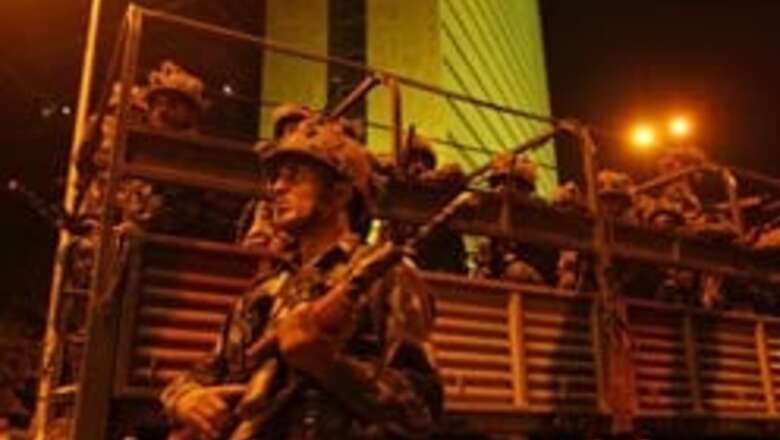
views
Terror can be fought only by training individuals to react quickly and effectively, security expert Captain Raghu Raman tells Shishir Prasad.
Raghu Raman is an ex-serviceman and the CEO of Mahindra Special Services Group, a corporate security risk consulting firm that helps organisations reduce risk and enhance competitive advantage. MSSG provides consulting services with skill sets previously available perhaps only to the armed forces. During his 11-year stint with the Armed Forces, Raman had fought terrorists in Punjab, faced Pakistani troops in Siachen Glacier, served as a UN peacekeeper in war-torn Angola and taught at the prestigious School of Armored Warfare.
Question: Where are we going wrong in protecting our cities and citizens?
Answer: The textbook definition of vision means ability to look ahead and to anticipate. And we are like animals in a slaughterhouse, unable to see the cries of another creature to realize what is around the corner. An ordinary citizen is detached from his surrounding from a security perspective. How else do you explain people walking around with AK-47 and bystanders not raising an alarm or even informing the police?
Question: You don't expect people to walk around with AK-47s, right?
Answer: Exactly my point. One of the key, in fact the primary drivers of responding to terrorism, is intelligence….
Question: That's the job of government agencies.
Answer: It is. Very much so. But the people and companies have to become plugged in into this intelligence fabric. Let me take an instance. When the National Security Guards (NSG), were preparing for the operation they were getting inputs from the people inside the hotels, but most people were not able to express it in a manner that would have helped. [Captain Raghu Raman was there when the NSG was operating, helping some of the corporations extricate their people from the building].
To illustrate what I mean, let me compare this with a similar situation in Kashmir. If the NSG guys were to ask a kid in a village that have surrounded about the kind of arms the militants were carrying the boy will say: "Saab, sabke paas AK tha [everybody had AK-47s in their hand]". The boy will also tell me whether the magazines were taped together or not. This is very useful information because if the magazines were taped it means the terrorists are well trained because it is much more difficult to handle an AK with taped magazine because its accuracy parameters change.
Question: But as a common man and a company why do I have to notice such details or have this knowledge?
Answer: Because it makes you very vulnerable. Imagine the hours between the terrorists' entry inside the hotel and the arrival of the NSG. The terrorists entered from one side of the hotel and shot their way through to Tiffin restaurant, which is on the other side. It would have taken almost two minutes for them reach Tiffin. During that time there was almost a shock action for the people inside the restaurant because they were still there when the terrorists arrived. And the terrorists exploited the shock action.
If there had been a fire that night in the Trident I confident that the staff would have been able to evacuate the restaurant in under a minute. But the sound of gunshots, screams of people, and shattering of glass made them react very differently. And it is this reaction in time that we have to cut down by training.
Question: So what can people and companies do to cope better with this threat?
Answer: People need to look around. Do we have a number where I, a common citizen, can call in and report some suspicious looking people who have just moved in to my locality? Citizens have to be the eyes and ears of the formal security agencies.
For corporations, security is clearly a board-level issue. The safety of people working inside organizational premises is the job of the companies. They need to have their employees trained to respond to a terror situation. And I am not talking about fancy gadgets and gizmos. There is no better gadget than a trained human mind.
Shishir Prasad is deputy editor at the new business magazine to be launched by Network18 in alliance with Forbes, USA.














Comments
0 comment